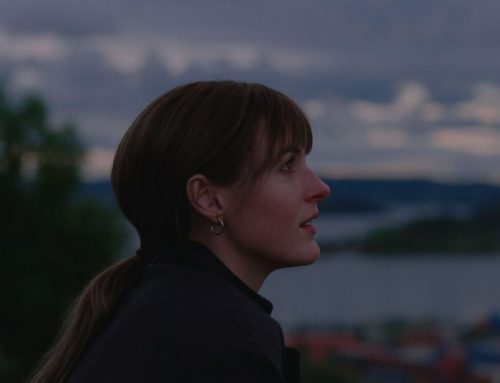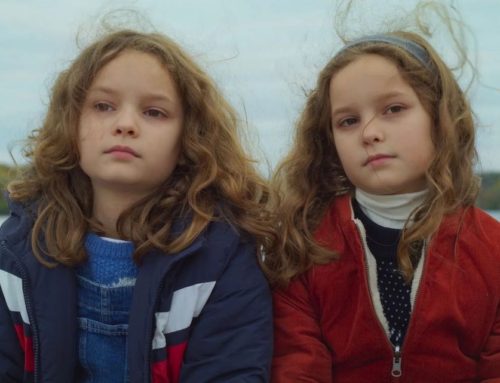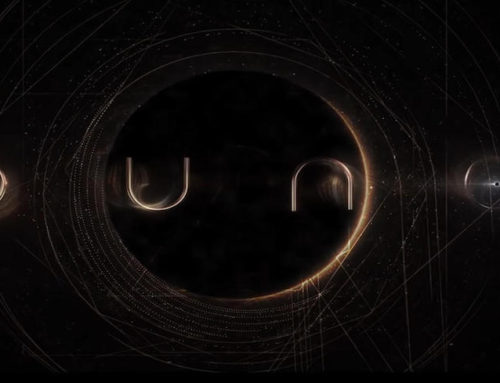Many production companies and cinemas have suffered much during the COVID-19 lockdown. This is why whenever one does the extraordinary for today thing of going to see a movie in a theatre it is accompanied by the hope that the film would be a good one. This generous expectation is extended even to the many films produced by Netflix who, unlike most others, seem to be thriving in Plague Year 2020 and happy to provide most of the films for the awards season.
Regretfully, even despite the desire to like the new releases, some of them don’t deserve that liking. Amongst those is this year’s Rebecca, currently available on Netflix and in some cinemas around the world. Based on the iconic Gothic romance novel by Daphne du Maurier from 1938, the heroine of the story is a poor and plain girl, whose name we never learn. Working as a companion for a horrible American snob in the south of France, she meets and falls in love with Maxim de Winter, a wealthy English gentleman, still grieving for his recently deceased wife. To everybody’s dismay, Maxim decides to marry her and both depart for Manderley, his country house in England famed for its beauty. There, the new Mrs de Winter feels oppressed by the shadow of her predecessor, Rebecca, whom all, even her husband, seem to prefer to her. The preservation of Rebecca’s ghostly presence in every corner of the house is ensured by the sinister housekeeper, Mrs Danvers, who seems determined to spoil the newcomer’s happiness. From there on the story spirals into a dark and mysterious tale of love, maturation, betrayal and horror.
The 2020 adaptation of this rather exciting material faces some stiff competition. Rebecca has been graced by many productions for cinema and television, even by one for radio with Orson Welles in the very year of the book’s release. The most celebrated one, however, is Alfred Hitchcock’s version from 1940, which was also his Hollywood debut. Remarkably, it was nominated in more than ten categories at the Academy Awards, and won the statuette for Best Picture. And it is a masterpiece indeed, a high Hitchcockian drama, starring Laurence Olivier and Joan Fontaine, which is still fresh and exciting, even to a contemporary over-stimulated viewer. It is an adaptation very difficult or, perhaps, impossible to better.
That, of course, does not mean that the filmmakers of today have no chance of achieving greatness and should avoid approaching classical material that has already been adapted for screen by past genius. A good example for this is Leo Tolstoy’s War and Peace. This greatest of novels had had so many exceptional renditions, both in Russian and English, that it was hard to think we were in need of any more. And yet, in 2016 the BBC gave us something different from its characteristic anti-Tory sewage, i.e. the nice surprise of a six episode adaptation of the Russian classic. It was a remarkable and beautiful oeuvre that looked just as good as or even better than its predecessors, featuring wonderful performances by people like Paul Dano, Jim Broadbent and Jessie Buckley, to name but a few.
The 2020 Rebecca, however, is very far from the achievements of the BBC War and Peace, looking pale and anaemic in comparison to the Hitchcock movie. That being said, a viewer who is not familiar with the source material for a production and the past films based on it, may well be satisfied with the new one he watches as long as it tells an engaging and plausible story. One is sad to say that the new Rebecca, with its mediocrity, rushing of the narrative and vague nature fails to do even that.
For instance, the two main characters, Maxim and his new wife, are miscast. Armie Hammer, who plays Rebecca’s widower, is a wonderful and charming actor, but he is so American that it is difficult to take him seriously as a reserved land-owning English aristocrat. More importantly, he looks far too young for this part. Maxim is a man who has had a life filled with experiences, some good, most bad, the latter leaving the imprint of maturity on him. His future wife, the nameless Mrs de Winter, is played by Lily James. Following the development of James’s career from playing the part of the pretty ingenue to deeper and more challenging characters is a pleasure. However, this capable and charismatic actress is far too attractive to play the new Mrs de Winter. The whole point of the marriage between Maxim and the heroine of the story is its unlikelihood, not only because of their class differences, but also because of her awkwardness and plainness, so much removed from the beautiful and glamorous Rebecca. Although James goes out of her way to underline her character’s awkward side, seeing her and Armie Hammer drive around the south of France, get married and live an enchanted life together seems like the most natural thing in the world. Throughout the film James wears drab and unbecoming clothes, but they hide neither her beauty nor the fact that she is more suited to play Rebecca than her replacement.
However, neither of the two leading characters is the most iconic figure of Rebecca. That honour is given to the mysterious and terrifying housekeeper, Mrs Danvers. After reading or watching a Rebecca, we may not remember much about Maxim or his new wife, but Mrs Danvers follows us like a shadow. In the Netflix version, the role is taken on by Kristin Scott Thomas who, with her graceful embracing of advancing age and the more experimental parts that this brings her way, is the perfect actress for Mrs Danvers. And yet, it seems that even this was not enough to ensure a successful and satisfying rendition of the part. In the original story, there is a strange undercurrent of eroticism in the housekeeper’s obsession with the dead Rebecca, a hint at same-sex love which was possibly a reflection of Daphne du Maurier’s own alleged affairs with women. This eroticism is palpable not only in the book itself but also in Hitchcock’s film, despite the censorious Hollywood Production Code of the time, which made sure that movies were purged of all immorality.
Today there is the opposite tendency. In an embarrassing and patronising attempt to appear more progressive, production companies shoehorn characters from sexual and racial minorities into classic stories which do not fit them, that way doing a disservice to their source material, the minorities they purport to support and the viewers. However, when the original story offers fertile soil for the representation of a minority, why downplay it? Why not embrace and play with it more? Of course, that should be done in a discreet and tasteful way, but it is bizarre that the Rebecca of 2020 seems less keen on exploring same-sex love than the one of 1940. This is a lamentable loss of opportunity to inject some subtle lesbianism into today’s cinema.
There is another very important character in Rebecca, which the new film does not fail to butcher. It is not a person, but a place: Manderley, the country house of the de Winters. Regarded as one of the greatest stately homes in England and given an epic and luscious set in Hitchcock’s version, Manderley has to be better than Downton Abbey. Manderley has to be Downton Abbey on methamphetamine. But the country house inhabited by Hammer, James and Scott Thomas is a disappointment. In order to show some pity, one ought to refrain from commenting on its anticlimactic exterior. But many of the interior scenes were shot in Hatfield House in Hertfordshire which, albeit impressive and beautiful, has been greatly overused as a location. It features in dozens of films and TV series, most notably Batman, Orlando, The Favourite, The King’s Speech, Hulu’s The Great, Enola Holmes etc, and, although it can be used as a nice background, it is not spectacular enough for the supposedly unsurpassable Manderley.
Granted, the 2020 Rebecca has some commendable scenes and performances. The opening sequence of the film in the south of France is stunning and watching the morose Scott Thomas slither around the dark corridors of the house is a delight. But on the whole it is an underwhelming film that fails to tell us the thrilling Gothic tale du Maurier gifted the world. Moreover, as one watches it, it is difficult to say whether the film itself knows what it is. Is it a romance, or a thriller mystery, or a darker version of Downton Abbey? Perhaps being more faithful to a particular genre would have given it a more stable structure and salvaged it. In any case, if you want to watch Rebecca, you should definitely do so. But do watch the Hitchcock one from 1940, currently available on YouTube for free.
‘The Haunting of Rebecca: A Review‘ is an article written by Kyril Buhowski. You can follow Kyril Buhowski on Instagram.





